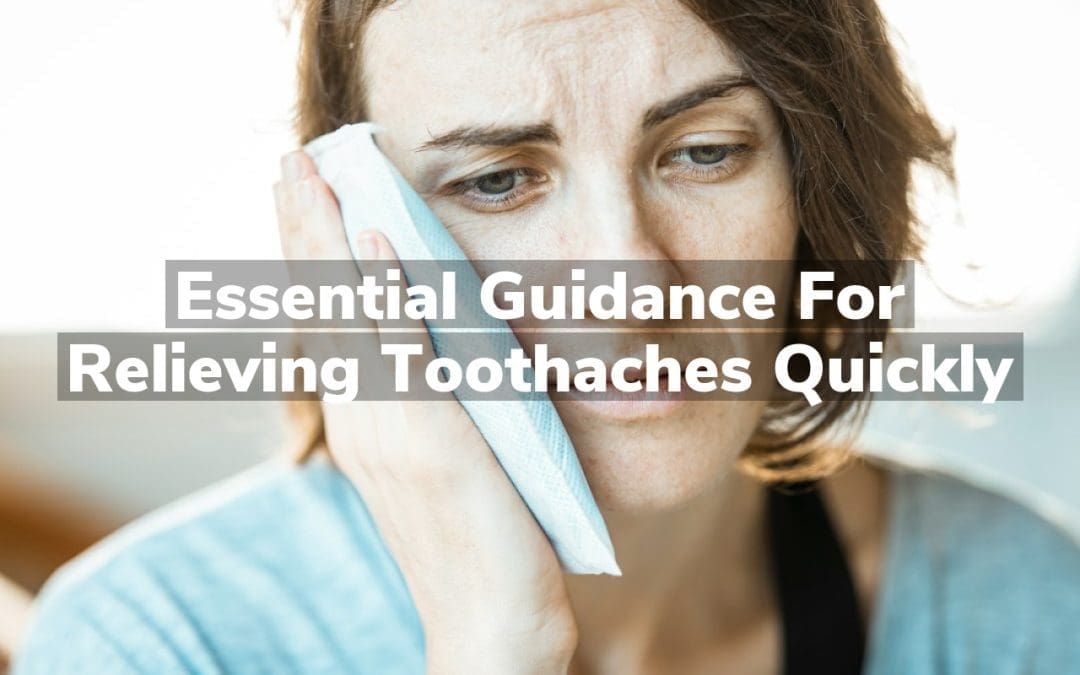Are you tired of suffering from toothaches? Conyers Dental Associates has essential guidance for relieving toothaches quickly, including over-the-counter pain relievers, cold compresses, and avoiding certain foods and drinks. Read on for more tips on how to alleviate tooth pain.
Natural Remedies for Tooth Pain
Toothaches can be excruciatingly painful and can disrupt your daily routine. While it is always advisable to visit a dentist for proper diagnosis and treatment, there are some natural remedies that can help relieve tooth pain temporarily. One of the most effective natural remedies for tooth pain is clove oil. Clove oil contains eugenol, which has natural analgesic and anti-inflammatory properties. Simply apply a few drops of clove oil to a cotton ball and place it on the affected tooth for instant relief.
Another natural remedy for tooth pain is saltwater rinse. Saltwater has natural antiseptic properties that can help reduce inflammation and kill bacteria in the mouth. Mix a teaspoon of salt in a glass of warm water and swish it around your mouth for a few minutes before spitting it out. This can help alleviate tooth pain and also prevent further infection. For more immediate remedies for swollen gums in emergency situations, check out our article on Immediate Remedies for Swollen Gums in Emergency Situations.
While natural remedies can provide temporary relief, it is important to seek professional dental care for long-term solutions to tooth pain. Ignoring tooth pain can lead to more serious dental problems, so it is always best to consult a dentist for proper diagnosis and treatment. In the meantime, try these natural remedies to alleviate tooth pain and discomfort.
Foods to Avoid with Toothaches
When experiencing a toothache, it is important to avoid certain foods that can worsen the pain and cause further damage to the affected tooth. Hard and crunchy foods such as nuts, chips, and popcorn can aggravate the toothache by putting pressure on the affected tooth. Sticky and chewy foods like caramel, taffy, and gummy candies can also worsen the pain by sticking to the tooth and pulling on it.
Acidic foods and drinks like citrus fruits, tomatoes, and soda can irritate the tooth and cause sensitivity. Additionally, hot and cold foods and drinks should be avoided as they can trigger sharp pain in the affected tooth. It is best to stick to soft and easy-to-chew foods like soups, mashed potatoes, and smoothies until the toothache is relieved. If the pain persists, it is important to seek urgent dental care in Conyers by visiting Conyers Dental Associates.
.
Emergency Dental Care Options
When a toothache strikes, it can be a painful and distressing experience. In some cases, the pain may be so severe that it requires emergency dental care. If you are experiencing a toothache that is causing significant discomfort, it is important to seek professional help as soon as possible. Emergency dental care options may include visiting an emergency dentist, urgent care clinic, or hospital emergency room. These options can provide immediate relief for your toothache and help prevent further damage to your teeth and gums. It is important to remember that delaying treatment can lead to more serious dental problems, so don’t hesitate to seek emergency dental care if you need it.
Tips for Preventing Future Toothaches
Prevention is always better than cure, and this is especially true when it comes to toothaches. To avoid experiencing the discomfort and pain of a toothache, it’s important to take good care of your teeth and gums. This means brushing and flossing regularly, avoiding sugary and acidic foods and drinks, and visiting your dentist for regular check-ups and cleanings. Additionally, wearing a mouthguard if you play sports or grind your teeth at night can also help prevent toothaches. By following these tips, you can keep your teeth and gums healthy and avoid the need for emergency dental care.
Over-the-counter pain relief options
When it comes to relieving toothaches quickly, over-the-counter pain relief options can be a lifesaver. These options include painkillers such as ibuprofen, acetaminophen, and aspirin. These medications work by reducing inflammation and blocking pain signals to the brain. It’s important to follow the recommended dosage on the packaging and to avoid taking more than the recommended amount. Additionally, topical pain relief options such as numbing gels and oral analgesics can provide temporary relief. However, it’s important to note that these options are only a temporary solution and should not replace a visit to the dentist if the toothache persists.
Conclusion
Don’t suffer from toothaches any longer, call Conyers Dental Associates at 770-483-6655 for quick relief and check out our reviews on Google Maps.

